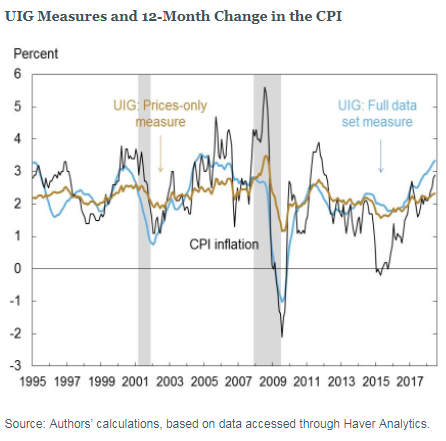U.S. Universities Continue to Produce Communists
Year after year parents ship their perfectly reasonable kids off to college, often paying the bill with money earned in what is left of the US capitalist system. Their kids return, wearing Che Guevara T-shirts, as full-blown communists.
For instance at Tufts University, Gabriela Bonfiglio and Kyle Lui have chugged the commie kool-aid and complained in an op-ed for the Tufts Observer that the university’s economics department is too focused on capitalism.
The econ department is out-of-step with young people, they claim. Capitalism is for old folks these two write, “according to a Harvard University study, ‘only the age group above 50 years old contains a majority that supports capitalism.’”
Lui and Bonfiglio believe students should be taught, not what’s right and true, but what they believe in. Certainly not neoclassical economics which champions, “free market capitalism [that] has created industries that directly profits off and benefits from the tearing apart of livelihoods and families of color through its legacy of racism.”
Their theory is capitalism is all about putting more people in prison so other people get rich. Yes, that’s what they write. “And if free market capitalism dictates that people get locked up in order for certain individuals to amass wealth, the prison population will only continue to increase according to economic theory.”
Where on earth did they get this stuff?
And while Ludwig von Mises wrote,
In the history of the last two hundred years we can discern . . . the trend toward freedom, the rights of man, and selfdetermination. This individualism resulted in the fall of autocratic government, the establishment of democracy, the evolution of capitalism, technical improvements, and an unprecedented rise in standards of living. It substituted enlightenment for old superstitions, scientific methods of research for inveterate prejudices. It was an epoch of great artistic and literary achievements, the age of immortal musicians, painters, writers, and philosophers. And it brushed away slavery, serfdom, torture, inquisition, and other remnants of the dark ages.
Bonfiglio and Lui don’t believe in individual happiness or self-interest. “Theories like these regard individuals as able to make deliberate, calculated choices to serve their own interests, instead of seeing happiness as communal.”
Bonfigilio and Lui interviewed the Head of the Department Professor Daniel Richards. His description of the department doesn’t sound hard-core laissez-faire.
Richards mentioned that many courses include a variety of real-world applications; for example, when government intervention works and when it does not. Specifically, Richards mentioned Obamacare as one intervention many professors “would understand the logic behind,” indicating that a large part of the department is willing to look beyond a purely capitalist system in the US.
However, student Alex Kowalick-Allen viewed her introductory economics course as,
focusing on “profit profit profit.” She felt economics was taught not “as a social science, but as hard science. We got so disconnected from the social side of it—that our economic system is supposed to benefit society.”
Bonfiglio and Lui think their economics department should be more like UMass Amherst, which, they write, is at the forefront of teaching Heterodox Economics.
Over at UMass Amherst, they aren’t wasting time on supply and demand and markets. No. “In their Economics department, they have professors who focus on feminism and queerness in their economic research, teaching topics such as the economic and social benefits of legally recognizing queer marriages and the impacts of fertility decisions and household work on the economy,” write the Tufts students.
Over in Tufts' Department of Urban and Environmental Policy and Planning, there is a class which “introduces the idea of a solidarity economy, which is based on the ideology of a community democratically controlling capital and resources to transform free market capitalism and our political and economic systems into a world rooted in values of democracy, justice, and sustainability.”
I think that idea was introduced a long time ago by Karl Marx. People are dying in Venezuela, right now, because of those ideas.
“Refusing to teach alternative economic models and centering capitalism perpetuates the current economic system that continues to put so many lives and families at stake,” write Lui and Bonfiglio.
If only it was free-market capitalism being practiced in the United States and elsewhere.
Mises reminds us, “Most men are accessible to new ideas only in their youth. With the progress of age the ability to welcome them diminishes, and the knowledge acquired earlier turns into dogma.”
Unfortunately U.S. universities are producing a whole new generation of socialists.






